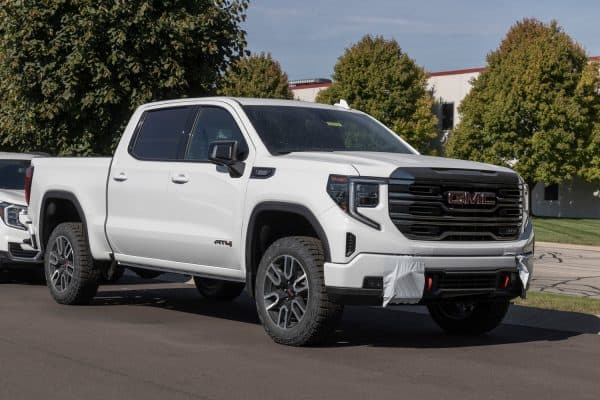The cost of fuel has reached historical heights, and that's why consumers prefer to purchase and use fuel-efficient vehicles. The question, however, is which trucks have the best gas mileage? We researched the question and here is what we have found.
Chevrolet Silverado 1500 has the best gas mileage for a full-sized, half-ton truck while the Ford Maverick leads the category in mid-size pickups. The "Top 5" lists for 2022 and 2023 models are included in the next section.
In this article, we will talk about the most fuel-efficient trucks, mileage and MPG, how to improve fuel efficiency, and other factors to consider before buying a pick-up. Read on and find out more!
Best Gas Mileage Full-Size Trucks 2022
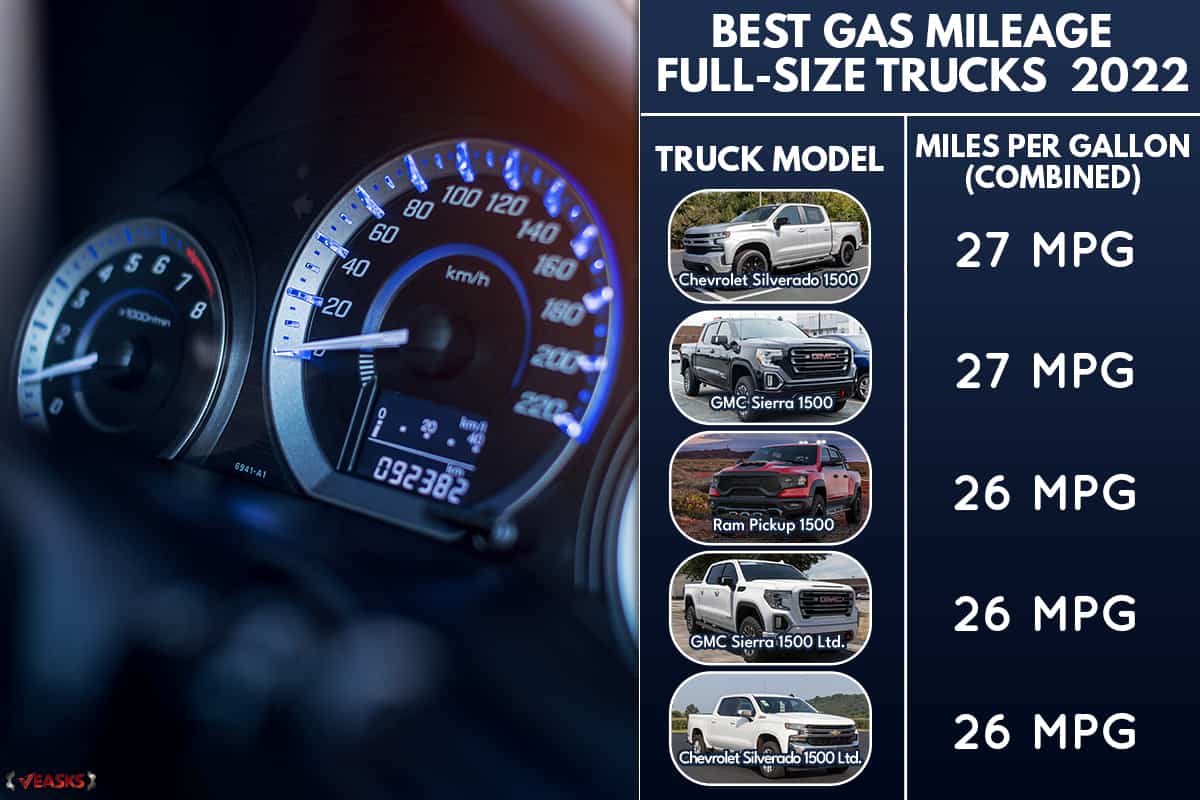
| Truck Model | Miles Per Gallon (Combined) |
| Chevrolet Silverado 1500 | 27 MPG |
| GMC Sierra 1500 | 27 MPG |
| Ram Pickup 1500 | 26 MPG |
| GMC Sierra 1500 Ltd. | 26 MPG |
| Chevrolet Silverado 1500 Ltd. | 26 MPG |
Best Gas Mileage Midsize Trucks 2022
| Truck Model | Miles Per Gallon (Combined) |
| Ford Maverick | 26 MPG |
| Jeep Gladiator | 24 MPG |
| Hyundai Santa Cruz | 23 MPG |
| GMC Canyon | 23 MPG |
| Chevrolet Colorado | 23 MPG |
Best Gas Mileage Half-Ton Trucks 2022
| Truck Model | Miles Per Gallon (Combined) |
| Chevrolet Silverado 1500 | 27 MPG |
| GMC Sierra 1500 | 27 MPG |
| GMC Sierra 1500 Ltd. | 26 MPG |
| Ram Pickup 1500 | 26 MPG |
| Ram Pickup 1500 Classic | 25 MPG |
Best Gas Mileage Full-Size Truck 2023
| Truck Model | Miles Per Gallon (City and Highway) |
| 2022 Dodge Ram 1500 | 23 and 33 MPG |
| 2022 Chevrolet Silverado 1500 | 23 and 31 MPG |
| 2022 GMC Sierra 1500 | 23 and 30 MPG |
| 2022 Ford F-150 | 26 and 25 MPG |
| 2022 Toyota Tundra | 18 and 24 MPG |
Best Gas Mileage Mid-Size Truck 2023
| Truck Model | Miles Per Gallon (City and Highway) |
| 2022 Ford Maverick | 23 and 30 MPG |
| 2023 Hyundai Santa Cruz | 19 and 27 MPG |
| 2023 Ford Ranger | 19 and 24 MPG |
| 2022 Chevrolet Silverado | 17 and 24 MPG |
| 2022 GMC Canyon | 19 and 25 MPG |
Best Gas Mileage Half-Ton Trucks 2023
| Truck Model | Miles Per Gallon (City and Highway) |
| 2023 Chevrolet Silverado | 23 and 33 MPG |
| 2023 GMC Sierra 1500 | 23 and 30 MPG |
| 2023 Ford F-150 | 20 and 26 MPG |
| 2023 Toyota Tundra | 20 and 24 MPG |
| 2023 RAM 1500 | 17 and 25 MPG |
Gas Mileage: Why it Matters

Mileage is the average distance that a vehicle can travel on a specified amount of fuel. It is an indication of a car's energy efficiency and is usually expressed in miles per gallon or MPG.
It is one of the main considerations when people are looking to buy a vehicle since it determines how much gas a car consumes and the expense that comes with it.
Determining MPG
The MPG rating of any vehicle indicates the number of miles it can cover using a gallon of fuel, the higher the value, the more efficient the engine. To illustrate, the pickup truck you want to purchase has an MPG of 26, this simply means that it could travel 26 miles, on average, consuming a gallon of gas.
The value, however, is just an estimate and the actual MPG depends on other variables, the main two being city and highway driving.
City or urban driving entails frequent stops, shifting, traffic, and speed limits, all of which tend to lower the mileage of vehicles since more fuel is necessary as compared to a constant, uninterrupted commute.
Highway or extra-urban driving results in better gas mileage since the trip encounters less congestion and the speed is kept consistently higher. Expressways, side roads, and other unfrequented thoroughfares are considered under this category.
Based on the travel and commuting patterns in most states, car manufacturers have formulated the ratio or time between the two main parameters. 55 percent is spent on the city while 45 percent is used on highways. This explains why there are two MPG values indicated in most vehicles.
Factors That Affect Fuel Efficiency [And How To Improve Them]
However, the fuel mileage indicated by the car manufacturer is simply an estimate based on tests and simulations to guide a vehicle owner. Realistically, it may vary considerably based on several factors.
Driving Habits
The way you drive and handle the vehicle has the greatest impact on fuel consumption and efficiency.
Frequent acceleration and speeding burn more gas than is necessary to achieve the same velocity with a gradual increase. Braking heavily, prolonged idling, and revving your engine have the same negative effect on gas usage.
Maintain a consistent speed and use the cruise control whenever possible as it would prevent the erratic consumption of fuel when speeding up or slowing down. Make sure the right gear is engaged and avoid shifting too often.
Maintenance And Servicing
The overall condition of your vehicle determines its performance which in turn affects the amount of fuel necessary to make it run. Regular servicing would prevent technical and mechanical problems that could worsen if not detected early.
Aside from the engine, transmission, and suspension systems, tire pressure, oil, spark plugs, batteries and other parts of the vehicle should be checked regularly to ensure optimal function and performance.
Any damaged or malfunctioning component, however minor, could compromise the entire truck.
Truck Weight And Cargo
The relative weight of the vehicle itself greatly influences the fuel efficiency, this becomes evident in that light cars have higher gas mileage than pickup trucks. The overall dimensions alone, coupled with passengers and cargo render larger vehicles to be more costly to run.
Lighten your truck by removing cargo boxes, bike or surf racks, and other accessories when not in use. Aside from the unnecessary weight, these could impede the aerodynamic design of your vehicle and increase fuel consumption.
Terrain And Geography
The calculated MPG of your pickup truck is based on controlled tests designed to simulate city and highway driving patterns and conditions.
Realistically, however, the variables may not apply to your area and usual commuting routes. Regularly using your pickup on off-road trails, inclines, or secondary undeveloped roads would eventually take a higher toll on consumption.
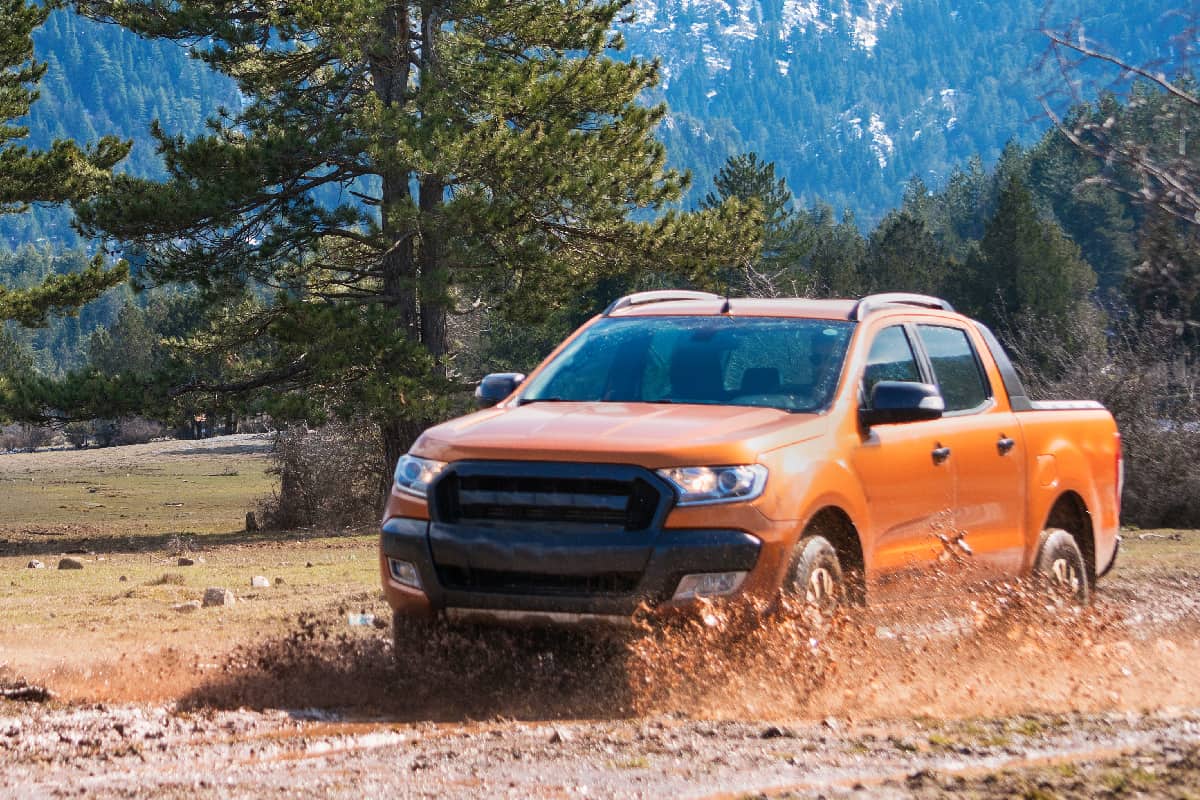
Inasmuch as nothing much can be done about it, proper driving habits and servicing would still optimize mileage.
What To Consider Before Buying A Truck

Apart from the mileage and fuel efficiency, here are other factors to consider before buying a pick-up truck.
Cabin Size
Your truck’s cabin size determines its capacity to hold passengers. There are different types of cab styles depending on your preference and your car’s usage. A regular cab has two standard-sized doors which can typically host two people.
An extended cabin is relatively larger than a regular cab, and it features two regular-sized front doors. However, the design emphasizes two suicide doors located at the rear. The passenger’s seat has smaller legroom that may be fairly uncomfortable for adults but is usually fit for kids.
A crew-sized cabin features the largest dimensions among the three cab sizes. It is built with four standard doors and a large cabin that can accommodate four to five adults.
It is however important to note that the larger the cabin size, the smaller the bed’s dimensions for easy handling and maneuvering. If the truck is mainly used as a family car, then a crew-sized cabin is the ideal option.
On the other hand, a regular cab is the best choice for work-related or utility vehicles.
Bed Dimensions And Combinations
Truck beds are used to transport farm equipment, home appliances, bicycles, and other essential accessories and instruments that need to be transferred. The relevance of your bed’s dimensions is also determined by its main use. Pick one that suits your overall needs.
The beds are available in three distinct sizes – short, standard, and long. A short box is typically 5' 8" long that features a crew-sized cabin. It is the standard for family vehicles because the bed usually remains unused.
A standard box is 6' 5" long. The cabin size can be extended or crew depending on the owner’s preference. Note that a crew-sized cabin paired with a standard bed is longer and can be difficult to maneuver.
A long box is 8' long and is normally combined with a regular cabin size. Since the truck is mainly used as a utility vehicle, the bed should be large enough to accommodate work-related
Engine Power
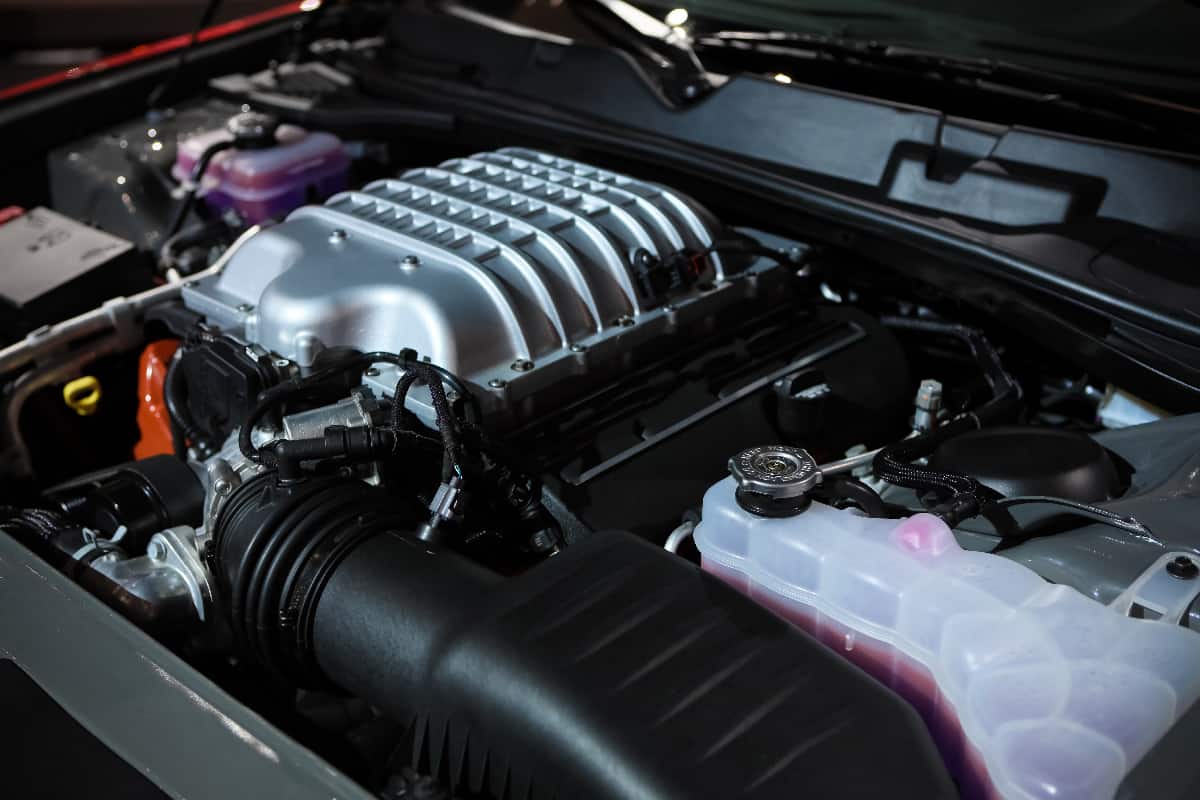
A truck’s engine power determines its capacity to run fully loaded. There are several parameters to consider since they affect the general performance of your vehicle.
A diesel engine is way better at towing really heavy loads as opposed to a gas engine that is capable of hauling lightweight trailers. However, if the material that has to be hauled is between 7k to 8k pounds, then either engine can be used to traverse the road.
Apart from this, your vehicle’s torque and horsepower also come into play. The higher these two are, the more strength the engine has, and the higher the capacity of the truck to run fully loaded.
Older Trucks With Good Gas Mileage
Three of the best fuel-efficient older trucks include:
- the 2013 Toyota Tacoma,
- the 1997 Chevy S10,
- and the 2009 Chevy Silverado Hybrid.
The Tacoma offers 19 mpg on the highway and 24 in the city. The S10 gets 27/20 highway/city mpg, and the Silverado Hybrid goes for 22 highway and 21 city mpg.
In Closing
The fuel efficiency of your pickup truck is mainly determined by its engine but certain factors affect its mileage and general performance. We hope the article helped you determine which vehicle has the best mpg.
You might also find these topics informative:
Truck Downshifting Hard – Why And What To Do?
What Trucks Have A 6 Foot Bed?

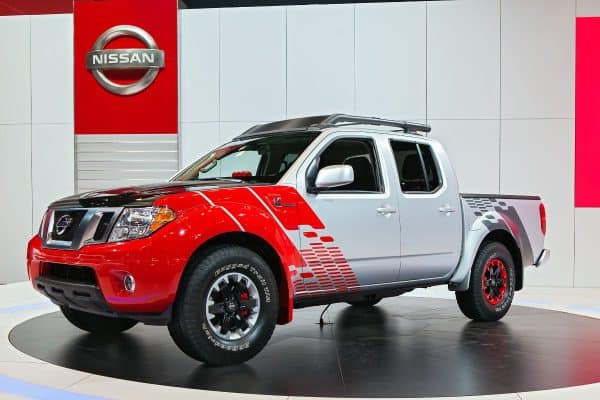
![Portrait of middle aged bearded truck driver standing by the truck and showing his commercial driver license. Focus on CDL license. Truck driving school and job openings, Do You Need A CDL To Drive A Box Truck [By State]](https://veasks.com/wp-content/uploads/2022/11/PORTRA1-600x400.jpg)
